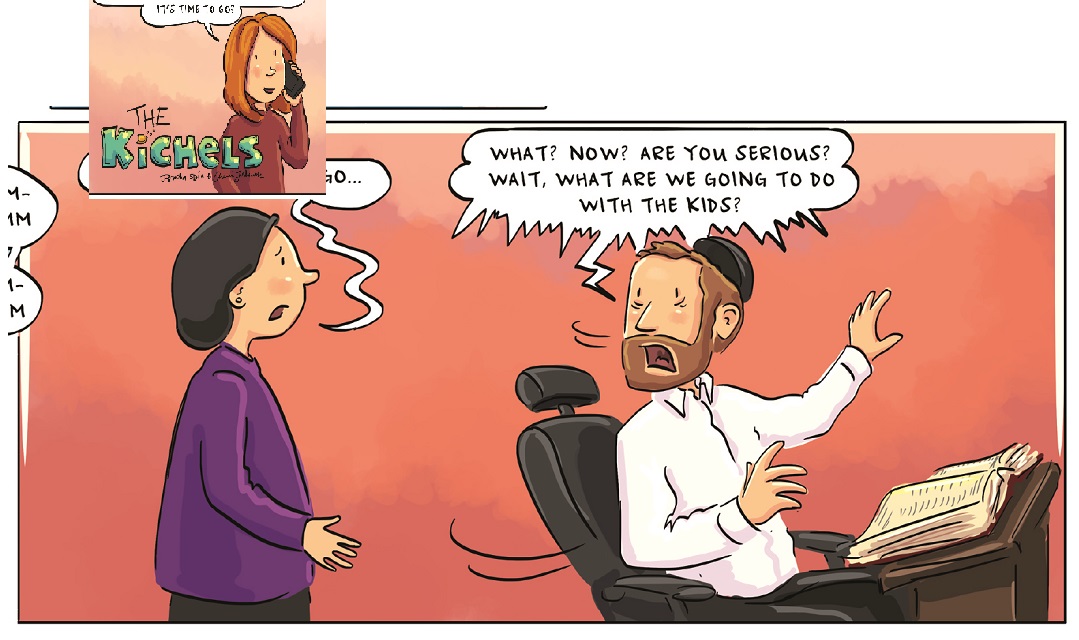Do Wives Just Do Double The Work?
The Inbox letter “Double the Work” — in response to this Kichels comic — continues to draw feedback about gender roles and responsibilities in marriage. Below is the original letter, and a sampling of the responses.
So I know the Kichels about the men completely not listening to the women was just a joke, but it’s given me the opportunity to share something that bothers me quite often with the larger frum community because I am very curious what others would think of this.
I’m 22 (and dating) but my biggest fear about marriage is this idea that women should take care of everything and men are somehow incompetent and must be babied and built up but can’t act like adults, can’t even pay attention to their wives, and women should just take it and do everything because “that’s just men.”
I’ve had many people, mainly women, tell me that I can’t expect help around the house from my future husband and no matter how much I hate to cook, I will have to do it anyway because he can’t help. Not only must I cook, but I have to cook certain foods that nauseate me because he will want it.
I think I’m the only one who feels this way but I’m not sure I want to get married if it just means having to do double the work and never being allowed to ask for help. I really do not understand why we have and perpetuate the idea that men are incompetent and wives are annoying whiners just for needing help.
I would love to hear other people’s take on this.
Name Withheld
What do you think?
Join the Conversation below!




Comments (16)